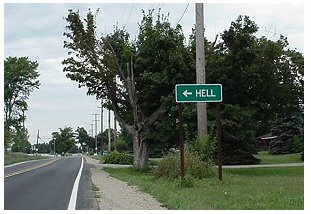Magnificent Freedom
Read Luke 1:39-55
I have in my hand a very scary document: the Freedom Charter. It was read for the first time on 26 June 1955 in Kliptown at the Congress of the People. Members of the SA Communist Party wrote it: Z.K. Matthews and Rusty Bernstein the most well known amongst others. It was adopted by all four organisations at the Congress: the ANC, the SA Congress of Democrats, the SA Indian Congress and the Coloured People’s Congress. Nelson Mandela was there and had to escape disguised as a milkman when police broke up the meeting. This dangerous document formed the basis of our Constitution, the most radical Constitution in the world at the moment. 50 years later, the Freedom Charter’s ideals of democracy and a commitment to a South Africa owned by all its peoples, of all races and creeds, still speaks to a world beset by powerful elites who rule with impunity but whose power is slipping.
I hold in my other hand an even more dangerous document. While the Freedom Charter has been speaking for 50 years and inspired our Constitution, this document has been speaking for nearly 2000 years and, arguably, inspired some of the values voiced in the Freedom Charter. This is the Bible. Powerful people have tried to corrupt its message, to water it down so that its call to freedom will not be heard. They have banned it, they have mistranslated it, they have put it in museums, they have funded whole universities to divert people from its meaning with clever interpretations, and they have killed those who took it seriously. But, despite all this, people all over the world have read it and claimed for themselves and their neighbours the right to be free.
Back before India won its independence, it was under British rule. Bishop William Temple of the Anglican Church warned his missionaries to India not to read the Magnificat – or Mary’s song - in public. He feared that it would be so inflammatory that it might start a revolution!
There once was a time when established theology in South Africa seriously advocated the separation of black and white as well as the subjugation of darker races on the basis of the separation of Noah’s descendents. The separation of Noah’s sons after the flood had receded seemed to indicate a natural separation of people. It was obvious that the tasks assigned to the sons should be applied for time immemorial, namely that the sons of Ham shall suffer the “curse of Canaan” to be servants of servants. Today we find this interpretation laughable if not criminal.
But the Bible’s call to freedom today is in danger not from any government, but from it’s own avid reader: the vast majority of Christians who read this collection of documents read it as a personal love letter from God to themselves. As such it is about as much use to human freedom as a Reader’s Digest collection of recipes or gardening DIY.
From this radical document, Christians are inspired to proclaim the “Good News”. But few actually know what that good news is. For most it is simply that “God loves you”. This is true, but the full ramifications of what God’s love actually means is seldom taken into consideration.
The word “evangelism” comes from the Greek word “euangelion” which means literally “good news”. In common usage at the time that the New Testament books were written, euangelion was most often used to announce a new Emperor.
The early church’s command to preach the “good news” to all nations was tantamount to treason. It was a declaration of independence; of freedom. It was that world’s Freedom Charter. If we preach anything less today, we sully the blood of those who gave their lives for the cause of human freedom. As Christians we are not afraid of blood – it is our staple spiritual diet and for good reason. The blood of Christ flowed for freedom’s sake; the blood of his martyrs covers the world; and if we are not prepared to give at least our own lives for freedom, then we have no place in the “good news” of Jesus Christ.
That good news is... Listen! Listen world! Listen to a 14 year old girl braving a dangerous journey alone and pregnant so that she can rejoice with her older relative in the babies of their wombs; babies who will proclaim dangerous freedom:
‘My soul magnifies the Lord, and my spirit rejoices in God my Saviour, for he has looked with favour on the lowliness of his servant. Surely, from now on all generations will call me blessed; for the Mighty One has done great things for me, and holy is his name. His mercy is for those who fear him from generation to generation. He has shown strength with his arm; he has scattered the proud in the thoughts of their hearts. He has brought down the powerful from their thrones, and lifted up the lowly; he has filled the hungry with good things, and sent the rich away empty. He has helped his servant Israel, in remembrance of his mercy, according to the promise he made to our ancestors, to Abraham and to his descendants for ever.’
Good News indeed!




















